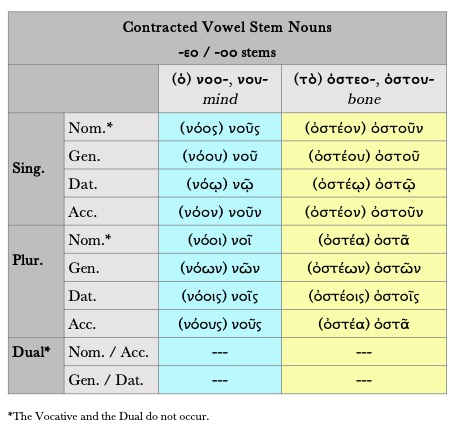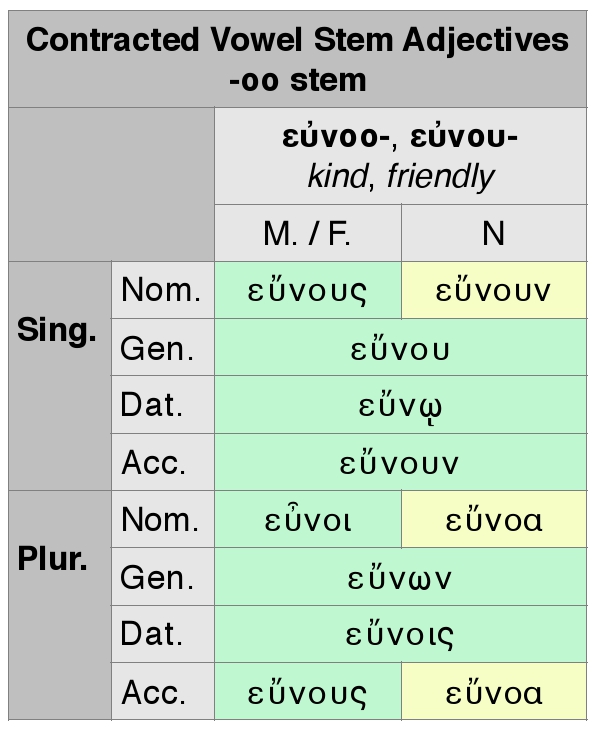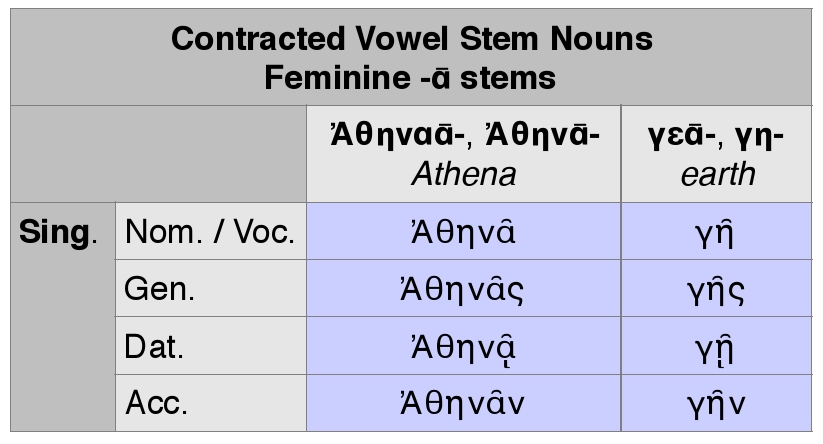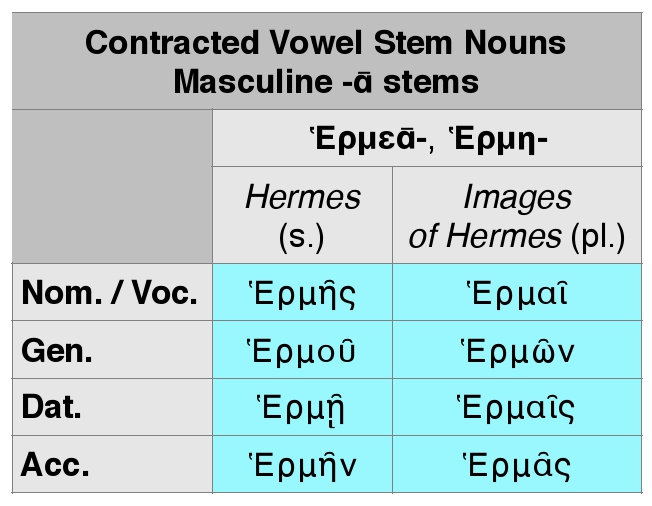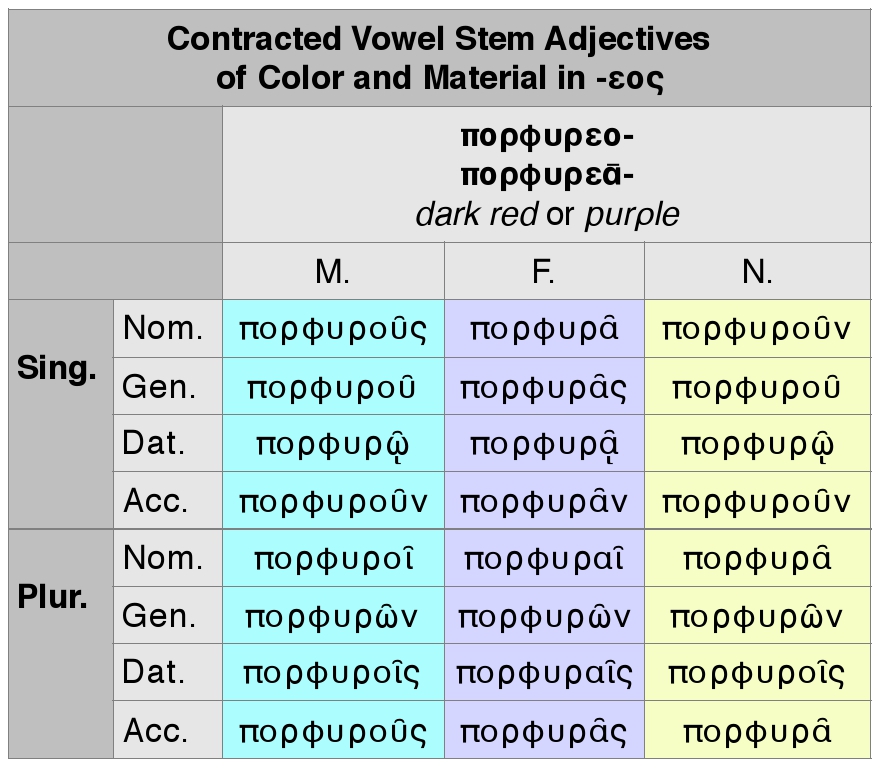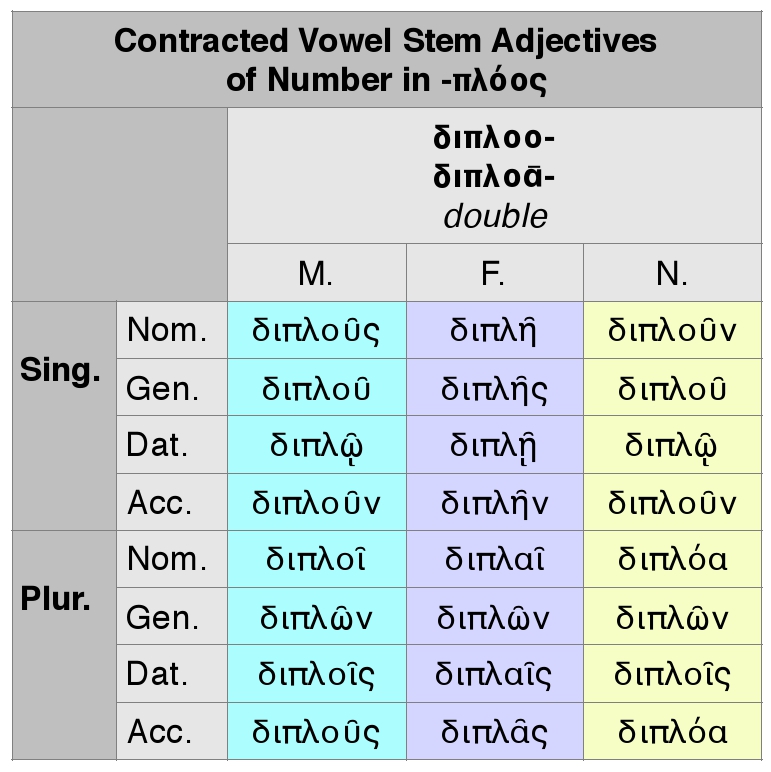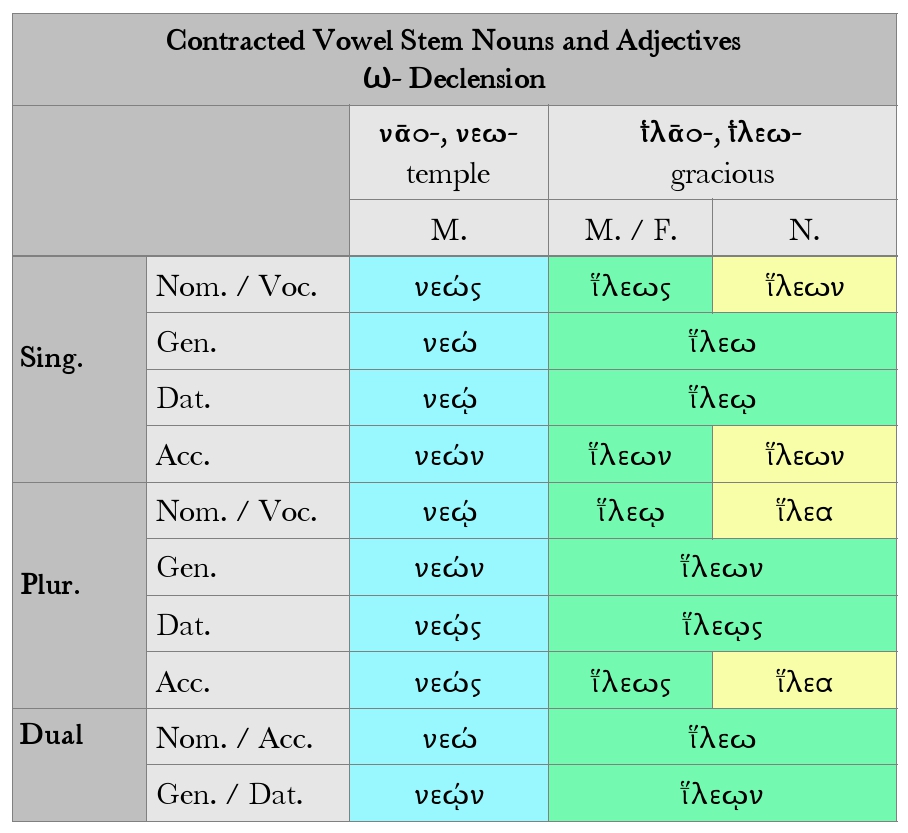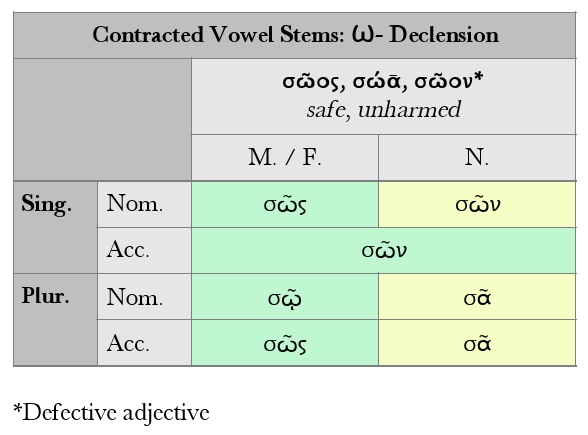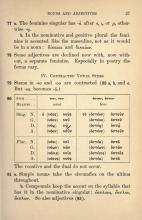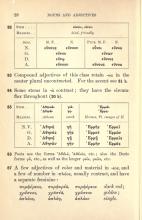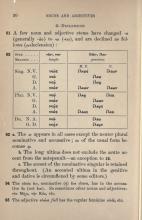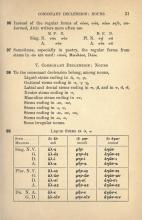79. Stems in -εο and -οο are contracted (§ 29.a & c. But -εα becomes -ᾱ.)
81. a. Simple nouns take the circumflex on the ultima throughout.
b. Compounds keep the accent on the syllable that has it in the nominative singular.
ἔκπλους, ἔκπλου, ἔκπλων
So also adjectives (§ 83, below).
82.
83. Compound adjectives of this class retain -οα in the neuter plural uncontracted. For the accent see § 81.b (above).
84. Some stems in -ᾱ contract; they have the circumflex throughout (§ 30.b).
86. Poets use the forms Ἀθᾱ́νᾱ, Ἀθᾱ́νᾱς, etc.; also the Doric forms γᾶ, etc., as well as the longer γαῖα, γαίᾱς, etc.
87. A few adjectives of color and material in -εος, and a few of number in -πλόος, usually contract, and have a separate feminine.
|
Nominative |
Meaning |
||
|
Masc. |
Fem. |
Neuter |
|
|
πορφύρεος |
πορφυρέᾱ |
πορφύρεον |
dark red |
|
χρῡ́σεος |
χρῡσέᾱ |
χρῡ́σεον |
golden |
|
ἀπλόος |
ἀπλόη |
ἀπλόον |
single |
88.
89. a. Contractions are mostly as in nouns, but the final syllables characteristic of this declension are kept; hence in the singular -ρᾶ (not -ρη: 77.a) and ἁπλῆ, and in the neuter plural -ᾶ (not -η).
91. A few noun and adjective stems have changed -ο (generally -ᾱο) to -ω (εω), and are declined as follows (ω-declension).
93. a. The ω appears in all cases except the neuter plural nominative and accusative; -oι of the usual form becomes -ῳ.
b. The long ultima does not exclude the acute accent from the antepenult—an exception to § 12.
c. The accent of the nominative singular is retained throughout. (An accented ultima in the genitive and dative is circumflexed by some editors.)
94. The stem ἑω-, nominative (ἡ) ἕως (dawn), has in the accusative ἕω (not ἑων). So sometimes other nouns and adjectives: τὸν Mίνω, τὴν Κέω, etc.
95. The adjective πλέως (full) has the regular feminine πλέᾱ, etc.
96. Instead of the regular forms of σῶος, σώᾱ, σῶον (safe, unharmed) Attic writers more often use
97. Sometimes, especially in poetry, the regular forms from stems in -ᾱο are used.
νᾱούς
Mενέλᾱος
ῑ̔́λᾱοι

